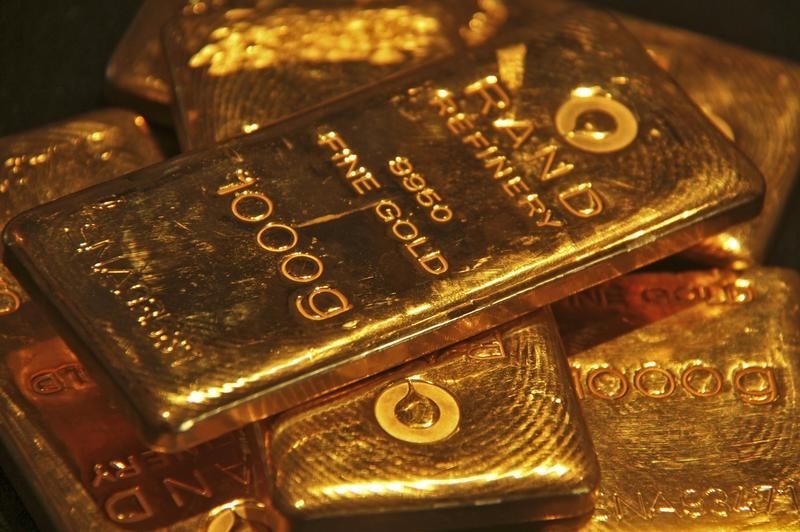Feb 13 (Reuters) - Gold prices held firm on Wednesday as the dollar weakened on hopes of a trade deal between the United States and China, but an improved risk appetite limited gains.
FUNDAMENTALS
* Spot gold XAU= was steady at $1,311 per ounce, as of 0115 GMT.
* U.S. gold futures GCv1 were mostly unchanged at $1,314.20 per ounce.
* U.S. and Chinese officials expressed hopes that a new round of trade talks, which began in Beijing on Monday, would bring them closer to easing their nearly year-long trade war. U.S. President Donald Trump said on Tuesday that he could let the March 1 deadline for a trade agreement with China "slide for a little while," but that he would prefer not to and expects to meet with Chinese President Xi Jinping. L3N2072YK
* Beijing and Washington are trying to hammer out a deal before the March 1 deadline, after which U.S. tariffs on $200 billion worth of Chinese imports are scheduled to increase to 25 percent from 10 percent.
* In Washington, U.S. lawmakers reached a tentative deal on border security funding, although aides cautioned that it did not contain the $5.7 billion President Donald Trump wants to build a wall on the Mexican border. Trump expressed displeasure with the deal on border security spending that offered no funds for his promised U.S.-Mexican border wall, but did not reject it outright and indicated he did not expect a shutdown. For the near-term, gold is expected to stay above $1,300, which is seen as a critical support level in charts followed by technical traders, analysts said.
* Holdings of SPDR Gold Trust GLD , the world's largest gold-backed exchange-traded fund, fell 0.40 percent to 798.89 tonnes on Tuesday from Monday. GOL/ETF
* South Africa's Sibanye-Stillwater SGLJ.J said on Tuesday it was considering measures including restructuring if alternative solutions could not be found to bring loss-making gold shafts back to profitability. Investors made a U-turn on emerging markets, naming them the most crowded trade, in Bank of America (NYSE:BAC) Merrill Lynch's survey for the first time in its history. The risk of a U.S. recession is not currently elevated, Federal Reserve Chairman Jerome Powell said on Tuesday.
